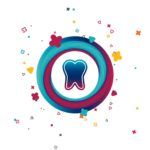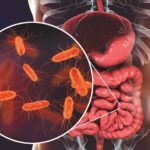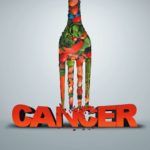Home Search
Cancer - search results
If you're not happy with the results, please do another search
Omega-3s May Protect Older Adults Heart Health
A study led by a Tufts researcher has found an association between levels of omega-3 polyunsaturated fatty acids in the blood over time and healthy aging.
Q. Should we be concerned about potentially unsafe amounts of the herbicide glyphosate in...
Q. Should we be concerned about potentially unsafe amounts of the herbicide glyphosate in oat products?
Gum Disease May Raise Cancer Risk
Periodontitis, advanced gum disease caused by bacterial infection that damages the soft tissue and bone that support the teeth, may be linked to higher risk of certain cancers, according to a new study published in the Journal of the National Cancer Institute. The study, led by Tufts epidemiologist Dominique Michaud, ScD, analyzed data from dental exams of nearly 7,500 black and white older adults, and compared periodontal disease severity with incident cancers and cancer deaths during an average of 15 years of follow-up.
The Gut Microbiota
The gut microbiota-a community of trillions of bacteria and other microbes that live in the human digestive tract-may have a powerful impact on human health. The study of the microbiota (or microbiome) is a major frontier in nutrition research, as scientists work to understand how these organisms interact with our bodies and the foods we eat. While work is just beginning in this exciting new field, it is hoped that someday soon we will understand how to take care of our gut microbes, so they can take care of us.
Leptin Discovery
More than 20 years after the discovery of the so-called obesity hormone leptin, a team at Tufts may have at last found this important compounds target in the brain. In the 1960s, researchers made a surprising discovery: There was a biological mechanism behind the ravenous appetites of obese mice. Labs around the world immediately set out to find out what was making these mice so hungry.
Too Much Sitting at Home Linked to Risk of Death
A recent review of prospective data published in the American Journal of Epidemiology provides one more excellent reason to get up and get moving. The study analyzed data from over 127,000 American men and women with a median age of around 20 years and followed up for 21 years.
Body Weight and Heart Health
Excess body weight increases risk for cardiovascular disease (CVD), as well as type 2 diabetes, certain cancers, and many other illnesses. However, not everyone who is overweight or obese develops these illnesses; and simply having a normal body weight or body mass index (BMI)-a measure of body weight relative to height-is no guarantee of low risk. The relationship between BMI and risk for CVD and death is complex, says Edward Saltzman, MD, academic dean for education at Tufts Friedman School of Nutrition Science and Policy. Elevated BMI does increase CVD risk, but risk is also impacted by things like body-fat percentage, waist circumference, age, duration of obesity, race, ethnicity, gender, and other genetic factors, as well as lifestyle elements such as smoking and level of physical activity.
Preparing for a Healthy, Happy New Year
According to surveys, the two most popular New Years resolutions involve losing weight and getting fit-and for good reason. Moving toward a healthier dietary pattern and being more physically active are crucial steps toward achieving well-being-with or without weight loss.
Diet and Cancer Prevention
According to the World Cancer Research Fund (WCRF), 20 percent of all cancers diagnosed in the U.S. are related to poor dietary choices and lack of exercise. So what should we eat, and what should we avoid? News outlets and the internet are full of (sometimes conflicting) reports claiming links between specific foods or nutrients and cancer. Many of these claims are based on a limited number of studies. But when researchers analyze all of the research on cancer and nutrition together, it becomes clear that increasing intake of individual foods or popping dietary supplements doesnt work. Overall dietary pattern, however, can make an important and significant difference.
Q. I heard that the heat from cooking makes oil dangerous. Is oil safe...
Q. I heard that the heat from cooking makes oil dangerous. Is oil safe to cook with?





























